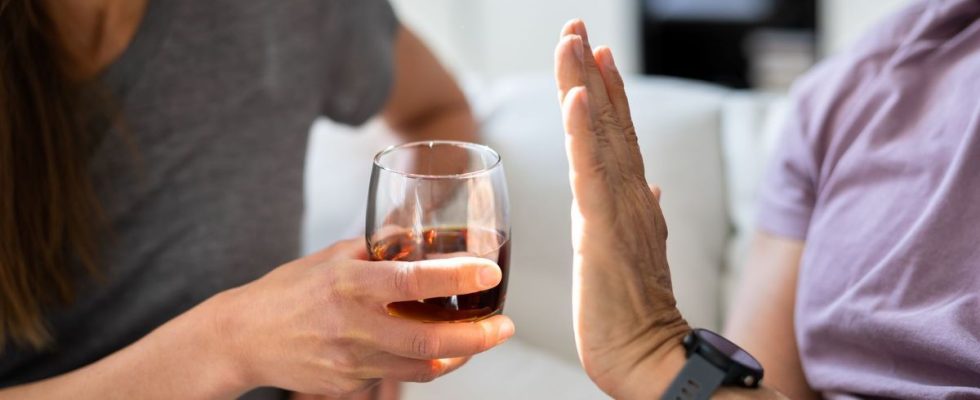Published on
Updated
Reading 3 mins.
Scientists have developed a smartphone application to control alcohol consumption. Tested on a group of university students, it allowed them to reduce their consumption and their days of excess.
Scientists have developed an application, available on smartphones, to help people who want to reduce their alcohol consumption to do so.
Swiss who do not have a truly neutral consumption
To check the reliability of their application, the experts offered it to 1,770 students from four Swiss universities. All had answered a questionnaire whose results attested to difficulties with their alcohol consumption. These students admitted to drinking nearly 9 glasses of alcohol per week and accumulating on average more than three days of alcohol excess per month. These days corresponded to a consumption of at least five drinks for boys and four for girls, knowing that in Switzerland, a standard drink contains 10 to 12 grams of alcohol (10 g in France).
The students recruited for this study were randomly assigned either to a group where they were asked to download the application in question, called Smart, a control group, which only answered the initial questionnaire. The 83.5% of participants in the first group, who downloaded the app, received a gift voucher. In the second group, all participants also received a gift voucher as a reward for completing the initial questionnaire, but without any support to reduce their alcohol consumption.
Subsequently, other gift certificates were given to all students who completed the three-, six- and 12-month follow-up questionnaires.
An application with fun and useful tools
Students using the app could record their daily consumption and assess its impact on their health via six functions, such as:
- Personalized feedback with the proportion of the Swiss population of the same age drinking less but also the calorie content of the drinks consumed and the equivalent if they ate hamburgers instead;
- Estimated blood alcohol content and associated risks;
- A self-monitoring tool, with a graph showing daily consumption against recommended consumption limits;
- A motivation tool, aiming to set alcohol consumption limits for one, two, seven or 30 days in order to receive virtual badges in case of success;
- A designated driving tool, with a choice made by the application in a fun way, thanks to a group photo to randomly designate who will be the driver and who will therefore remain sober;
- Fact sheets on the effects of alcohol on health.
The researchers estimated that students who downloaded the app used it up to 403 times over 12 months, an average of 21.2 times each.
A 10% reduction in alcohol consumption
Results: After one year of follow-up, students in the first group reported having reduced their alcohol consumption significantly compared to those in the control group. On average, this decrease was estimated at 10% fewer standard drinks per week and 11% fewer binge drinking days per month.
The authors acknowledge some limitations to their research, in particular that the results depend on self-reports by the volunteers, which may lead to under-reporting of daily alcohol consumption.
According to the authors, “compared to the control group, access to the application for 12 months reduced the volume of alcohol consumption in students who initially reported problematic alcohol consumption”.
An app soon available for Apple and Android
The online tool also required fewer resources than face-to-face interventions (no need to hire and train specialized healthcare professionals or dedicated space on campus) to perform interventions… even if we do not have a comparison with this type of intervention.
The authors consider the tool interesting enough to offer a version that will soon be available free of charge for everyone, on Apple and Android smartphones.
